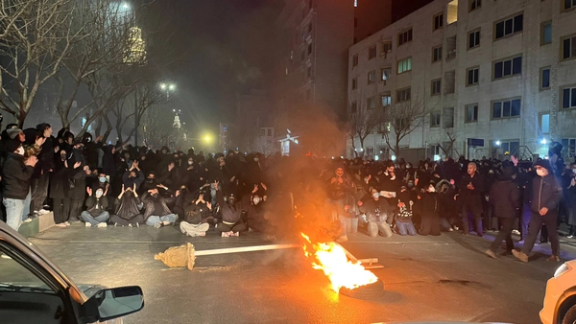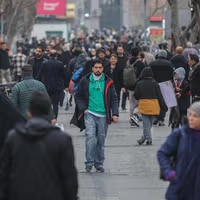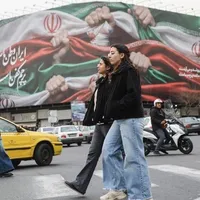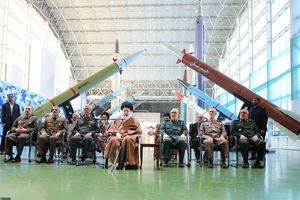Iran says no return to talks until US drops ‘excessive demands’

Iran's foreign minister said on Wednesday it will not return to negotiations with the United States unless Washington abandons what it described as unreasonable and excessive demands.

Iran's foreign minister said on Wednesday it will not return to negotiations with the United States unless Washington abandons what it described as unreasonable and excessive demands.
Abbas Araghchi told reporters in the northeastern city of Mashhad that Iran remained committed to diplomacy but would not compromise on its national rights.
He said five rounds of indirect talks with Washington had taken place before the 12-day conflict in June that saw US and Israeli strikes on Iranian nuclear facilities and that subsequent discussions on the sidelines of the UN General Assembly also failed due to US demands.
“This year, after five rounds of negotiations, the United States joined Israel’s military attack against Iran. Later, in New York, there was also an opportunity for a reasonable, mutually beneficial agreement -- but once again, the talks failed because of America’s excessive demands,” he said.
He added, “As long as the Americans persist in their policy of overreach and continue to make unreasonable demands, we will not return to the negotiating table.”
“Iran has always shown that it believes in peace and diplomacy,” Araghchi emphasized. “Wherever the country’s interests can be secured through dialogue, we will not hesitate to act. But the other side has repeatedly proven it does not adhere to diplomacy.”
The comments came as Araghchi arrived in Mashhad to attend a two-day regional diplomacy conference alongside senior Iranian officials, business leaders, and ambassadors to neighboring and Asian countries.
Earlier in the day, the foreign ministry spokesperson said Iran must rely on both its missile capabilities and diplomacy to safeguard national interests.
Speaking earlier in the day in the same city, Esmail Baghaei said: “We must use all tools to protect the country’s rights -- whether through missiles or diplomacy and negotiation.”
The collapse of the talks followed months of rising tension over Iran’s nuclear and missile programs, compounded by the reimposition of UN sanctions under the 2015 nuclear deal’s snapback mechanism.
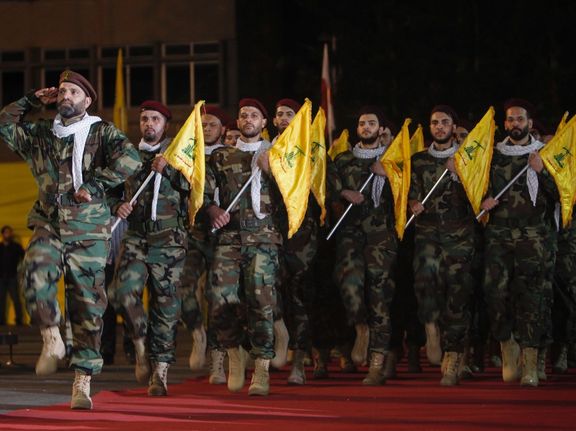
Hezbollah is relying more on its overseas financial networks as Iran faces economic strain, US experts told a Senate hearing on Tuesday, warning that the group could deepen its activities in Venezuela and across Latin America.
“Hezbollah has a long history of turning to its diaspora networks when it’s facing financial stress,” analyst Matthew Levitt said.
He told senators that while Iran continues to support the group, “it is having a much harder time getting that money to Hezbollah in a timely manner.”
Lawmakers described Venezuela as a growing hub for Hezbollah’s drug and finance operations.
Senator Sheldon Whitehouse, the top Democrat on the Senate International Narcotics Control Caucus, said the group “is one of Iran’s tools to destabilize and terrorize,” adding that “if we target Hezbollah’s financing, we can deny them the opportunity to rebuild.”
Levitt said Hezbollah has operated in Latin America for nearly five decades, cultivating ties with traffickers and using illicit trade networks to move money.
“If you need big money real fast, you turn to illicit activities and especially to narcotics trafficking,” he said.
Several senators urged a tougher US response to Venezuela’s cooperation with Iran.
Senator Bernie Moreno said the Maduro government’s actions “meet the legal standard” to be labeled a state sponsor of terrorism and warned that “Maduro should know his days are numbered.”
Witnesses also called on Latin American governments to follow the lead of Argentina, Colombia, and Paraguay in designating Hezbollah as a terrorist organization, saying it would help disrupt its financial activity and weaken Tehran’s influence in the region.
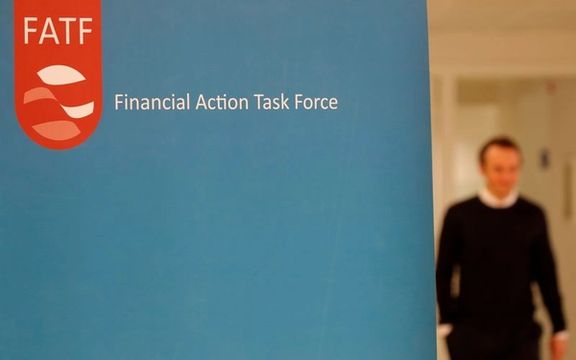
Iranian President Masoud Pezeshkian has signed into law the country’s conditional accession to the United Nations Convention for the Suppression of the Financing of Terrorism (CFT), approving it only within the limits of Iran’s constitution and domestic legislation.
In a formal decree on Tuesday, Pezeshkian instructed the judiciary, the ministries of interior, intelligence, justice, foreign affairs, and economy, as well as the Central Bank, to implement the law in accordance with national regulations -- a condition that could limit its impact even as Tehran seeks to ease its isolation from the global financial system.
Under conditions set by parliament and endorsed by the Expediency Council, Iran will act “within the framework of the constitution,” and in cases where any provision of the convention conflicts with national laws, “domestic legislation will take precedence,” council spokesman Mohsen Dehnavi said.
The move, which follows years of political wrangling, comes just a day before the Financial Action Task Force (FATF) plenary in Paris on October 22–24, where delegates from over 200 jurisdictions will discuss mutual evaluations and global efforts to combat money laundering and terror financing.
Iran’s Financial Intelligence Unit chief, Hadi Khani, has traveled to Paris to attend FATF plenary for the first time in six years at the group’s official invitation, according to state media.
Khani, who also serves as deputy economy minister and secretary of Iran’s Anti–Money Laundering and Counter-Terrorist Financing Council, is expected to outline Iran’s progress on its action plan, focusing on the recent approval of its accession to the UN Palermo Convention against transnational organized crime.
The Iranian delegation will brief FATF members on legislative and implementation steps and coordinate future meetings to address questions and clarify outstanding issues, IRNA reported.
In May, Iran’s Expediency Council, conditionally approved the country’s accession to the Palermo Convention, one of the two key legislative items tied to the FATF standards, alongside the CFT.
The Expediency Council, overseen by Supreme Leader Ali Khamenei, mediates disputes between parliament and the Guardian Council, a body that vets laws and candidates.
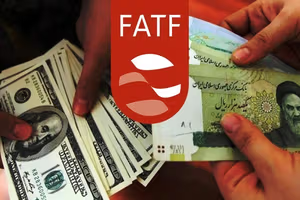
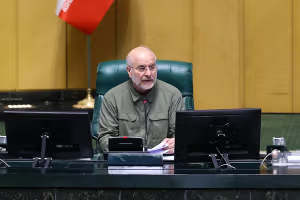
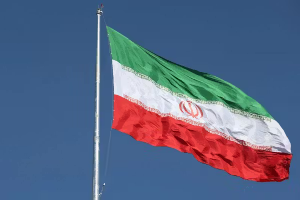
Supporters say joining the UN convention could help Iran align with FATF standards, reconnect with global banking systems, and attract investment, while hardliners warn it risks exposing financial channels used to evade US sanctions and fund regional allies.
Parliament Speaker Mohammad Bagher Ghalibaf sent the bill to Pezeshkian for implementation under Article 123 of the constitution last week after lawmakers rejected a conservative-backed motion to block the move, clearing the way for Iran to finalize its accession.
Iran and North Korea remain the only two countries still outside the FATF framework.
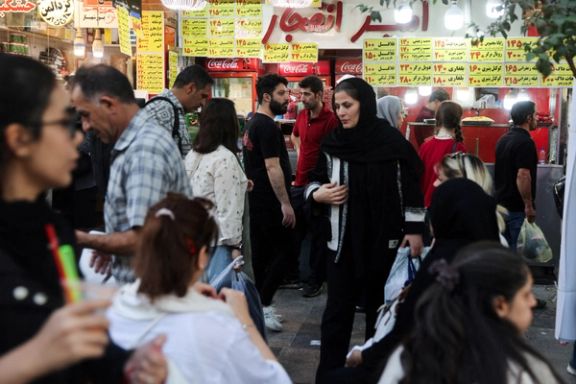
Iran’s establishment is bracing for renewed public unrest as UN sanctions squeeze an already fragile economy, Reuters reported, citing officials and experts warning that the government’s options to avert crisis are narrowing.
“The establishment knows protests are inevitable, it is only a matter of time ... The problem is growing, while our options are shrinking,” according to one Iranian official quoted by Reuters.
The sanctions, reimposed last month after the collapse of nuclear talks, have accelerated inflation, weakened the rial, and pushed millions further into poverty. The national currency has fallen past 1.1 million to the dollar, while inflation remainsabout 40%.
Officials told Reuters that high-level meetings have been held in Tehran to manage “simmering public anger” and prevent a repeat of past protests that shook the country.
“Mounting distress could reignite mass protests among lower- and middle-income Iranians,” a second official said.
The government, they said, blames the United States, its allies, and Israel for using sanctions to “fuel unrest” and threaten the Islamic Republic’s survival.
“The impact of the UN sanctions will be severe and multifaceted, deepening the country’s longstanding structural and financial vulnerabilities,” said Umud Shokri, an energy strategist at George Mason University. “The government is struggling to maintain stability as sanctions disrupt trade, banking, and oil exports.”
While Iran continues to rely on discounted crude sales to China, officials told Reuters that even this lifeline could weaken if Beijingseeks to ease tensions with Washington.
The prospect of deepening hardship has heightened fears within the establishment of another wave of street protests like those that erupted in 2019 and 2022 over fuel prices and compulsory hijab enforcement.
With unemployment rising and living costs soaring, the government’s reliance on security measures to preserve order risks backfiring, analysts warn.
As one Tehran-based trader put it: “When people lose faith in the currency, they lose faith in the system.”
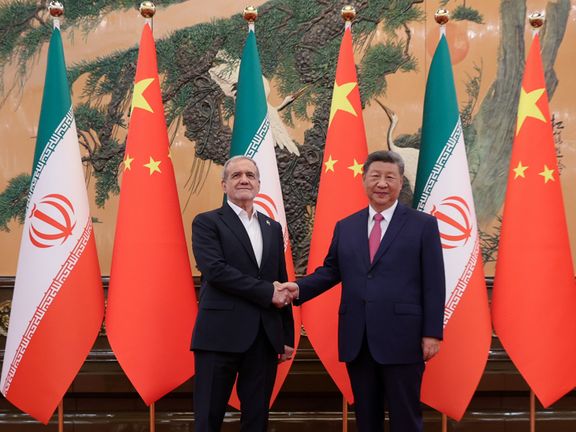
The return of UN sanctions has deepened Tehran’s isolation and tested Beijing’s pragmatic balancing act in a region shaken by Donald Trump’s new peace plan and the 12-day war between Iran and Israel.
The current state of China–Iran relations is unusually difficult to assess. Both governments continue to affirm their “strategic partnership,” but beyond the rhetoric the reality is less clear.
On paper, the two countries are bound by a 25-year cooperation agreement signed in 2021, covering trade, infrastructure, energy and security.
Yet China has remained notably cautious during Iran’s recent crises. Despite being Tehran’s largest oil customer and a key diplomatic partner, Beijing largely stayed on the sidelines as Israeli strikes hit Iranian territory.
In practice, the partnership operates within strict limits. While Sino-Iranian economic relations have been stagnating, China’s ties with Saudi Arabia and other Gulf monarchies have expanded dramatically.
Expectations meet caution
During the 12-day confrontation with Israel, some Chinese analysts urged a more proactive role—mediation, public condemnation of Israeli strikes or closer military cooperation.
But Beijing did little, triggering accusations in Tehran that it failed to grasp the Islamic Republic’s strategic value in its rivalry with the United States.
China should have done more, many asserted, rarely elaborating on what that more could look like.
Direct military or political backing, however, would have risked confrontation with Washington and jeopardized China’s broader regional network.

Oil as quiet support
Where China’s support has been most tangible is in energy trade. The world's top importer of oil is Iran's main, almost sole, customer.
Despite sanctions, imports of Iranian crude have continued to grow in 2025, with tankers often re-flagged or disguised to evade detection. This provides Tehran with a crucial lifeline.
For Beijing, the motive is less political than practical: discounted Iranian oil fits its strategy of stockpiling reserves and securing cheap energy while global prices remain low.
Dependence by default
With UN sanctions back in force, Iran faces renewed isolation from global finance, trade, and technology. That leaves Tehran even more dependent on a handful of partners—above all, China.
A recent review of Iranian media published by the ChinaMed Project confirms this.Iran’s leaders—or at least parts of the elite—prize strategic autonomy and resent reliance on any single power, yet options are scarce.
Russia, itself sanctioned and weakened, offers little beyond rhetoric. China, by contrast, provides trade, energy purchases, and a degree of diplomatic cover, making it Iran’s indispensable partner whether Tehran likes it or not.
The trajectory of Iran-Saudi relations will be decisive. If détente holds, Tehran may find limited room to maneuver; if it collapses, dependence on Beijing will only deepen.
Looking ahead
The return of UN sanctions on Iran coincides with Donald Trump’s unveiling of a new peace plan.
Beijing’s official line is that it “welcomes all efforts” toward peace based on a two-state solution. Chinese experts, however, are skeptical, arguing that peace will be impossible without recognizing Palestinian statehood—a position long enshrined in Chinese diplomacy.
Many Chinese commentators also see Trump’s plan as a US bid to reassert dominance, protect Israel’s interests, and strengthen Arab-Israeli ties.
Beijing opposes none of these in principle, but grows wary when they appear designed to isolate Tehran further, potentially undermining China’s own mediation between Iran and Saudi Arabia.
Beijing’s challenge is to sustain its balancing act: maintaining economic ties with Tehran, preserving partnerships with Iran’s Arab neighbors, and avoiding direct confrontation with Washington.
For Tehran, choices are narrowing. The more isolated it becomes, the more it must rely on China, even if that means accepting a subordinate position in the relationship.
China’s support for Iran remains significant but measured, rooted more in calculation than ideology. As sanctions bite and isolation deepens, Beijing’s role may grow—but within limits that protect China’s own interests above all.

US Vice-President JD Vance said on Tuesday that the United States is committed to diplomacy for the foreseeable future as its strategy to deprive Iran of nuclear weapons.
"(US President Donald Trump) actually wants Iran to be prosperous. He wants to have good relations with the Iranians, but they cannot have a nuclear weapon," Vance told reporters while visiting Jerusalem in a bid to shore up a Gaza ceasefire.
"So we're going to keep on using and exhausting every diplomatic means possible to try to ensure that Iran does not have a nuclear weapon. That's our focus, and that will remain our focus for the indefinite future," he added.
Trump has repeatedly said June 22 US attacks on Iranian nuclear sites "obliterated" the program and the Iran is more focused on survival than rebuilding its capabilities.
Tehran denies seeking nuclear weapons and called the attacks illegal.
Raising some eyebrows, the US President told the Israeli Knesset last week that it would be ideal if Tehran could be folded into a broader Middle East peace deal. Still, he has often mooted bombing Iran again if it seeks to rebuild its nuclear program.
Iranian Supreme Leader Ali Khamenei appeared to rule out any renewed talks with Tehran in a rare speech earlier on Monday, calling Trump's assertions on crippling its nuclear sites "nonsense" and telling Trump to "keep dreaming."
“(Trump) claims to be a man of deals, but if a deal is accompanied by coercion and its outcome is predetermined, it is not a deal but an imposition and bullying. The Iranian nation will not bow to such impositions,” Khamenei said.
The Middle East has been beset by two years of conflict since Iran-backed Hamas militants attacked Israel on Oct. 7 2023, sparking a devastating Israeli incursion into Gaza which triggered interventions by Iran's armed allies in the region.
The fighting, capped by the US-Israeli onslaught on Iran for 12 days in June, left Tehran and its affiliates seriously weakened, though a final resolution on the nuclear issues and Iran's posture toward Israel and the United States has remained elusive.
